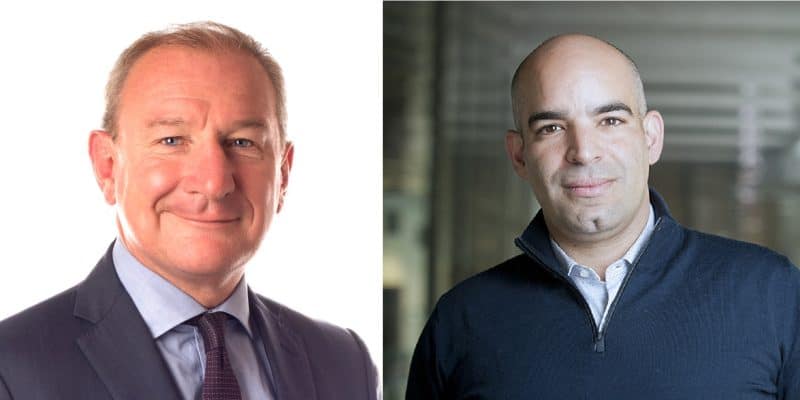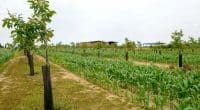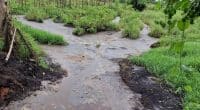Lazard Bank has just assisted Ecuador with a financial package that benefits both nature and the country's economy. Specifically, Ecuador has swapped its current debt of $1.63 billion for a debt of $656 million, a transaction equivalent to 3% of the South American country's total external debt, i.e. $48.129 billion in February 2023. In return for cancelling this foreign debt, Ecuador will finance measures to protect the Galapagos Islands, a World Heritage Site. Afrik21 spoke to Pierre Cailleteau, Managing Partner, and Hamouda Chekir, Managing Director and member of the investment bank's Government Advisory team, to find out more about this financial mechanism and whether it is feasible in the countries of the Congo Basin.
Afrik21: In what context did you come up with this mechanism, and what are the conditions required for its implementation?
Pierre Cailleteau: First of all, it’s important to remember that this type of operation has been around for a very long time. Indeed, during the major debt reduction operations of the early 1980s, and even in the 2000s with the Heavily Indebted Poor Countries (HIPC) initiative in particular, there were debt conversion operations. The French Treasury, for example, had a specific programme called C2D (debt conversion), which was linked to these debt relief operations, as part of the Paris Club. The Lazard bank worked on the restructuring of Ivory Coast’s debt to the Paris Club in France. And there was a C2D component, additional debt relief linked to commitments to invest in biodiversity. This was also done for Gabon, to name but two countries.
The difference with this scheme is that we are not converting bilateral debt, but market debt. We take advantage of specific market conditions to generate savings for the country and sources of funding for conservation programmes.
In the specific case of Ecuador, this involves marine conservation, i.e. the preservation of marine areas around the Galapagos Islands. And the ingredients for the success of this operation are as follows: firstly, this is a country that restructured its market debt in 2020. Having put its debt into post-restructuring, the country was trading at a discount with bonds below one dollar, which is particularly interesting. Secondly, it is a country that has always been committed to conservation, both of forests and of marine areas, notably the Galapagos. So the country was on the radar screen of non-governmental organisations (NGOs) promoting swap operations. The Pew Charitable Foundation, an American NGO active in the Galapagos, identified this type of operation on Ecuador’s behalf and obtained guarantees from the US DFC (U.S. International Development Finance Corporation).
It was from this stage onwards that we acted as advisors to Ecuador. We optimised the structure to maximise the amount to be repurchased and minimise the repurchase price so that the profits from the operation would be dedicated to the conservation of the Galapagos.
Afrik21: What guarantees have been put in place to ensure that the Ecuadorian government honours its commitments to preserving the biodiversity of the Galapagos Islands?
Pierre Cailleteau: There are two guarantees. Firstly, there is the transparency of the process, meaning that everyone knows exactly how it happened and how much money is being allocated. Secondly, there is the credibility of the local institutions, which have a budget to use for preserving the maritime area. In this respect, it should be emphasised that the new loans provide for penalties in the event of major breaches over a prolonged period, as well as commitments in terms of conservation. Basically, it’s a combination of transparency of the process and credibility of the players.
Afrik21: Can this type of operation be replicated in Africa, particularly in the countries of the Congo Basin, which are home to the planet’s second largest green lung?
Hamouda Chekir : It’s entirely replicable in Africa. Firstly, because there are a lot of countries on the continent that have very large amounts of bond debt and that have problems refinancing that debt.
Moreover, between now and 2025, there is going to be a wall of debt refinancing in sub-Saharan Africa, and as you know, the last time an African sovereign issued bond debt was 18 months ago. So there is a problem of a lack of resources to help African sovereigns refinance the bond debt they issued between 2010 and 2020. This is where the “debt against nature” swap could be of interest to African countries.
The aim of this type of initiative is to preserve highly visible areas that have positive externalities for the planet as a whole and are hotbeds of biodiversity. In this respect, the Congo Basin is a particularly interesting area.
Read also-CENTRAL AFRICA: what funding for the Congo Basin forests?
Afrik21: The Lazard Bank advises governments, including in Africa. Does it intend to give more support to this model as an alternative to outright debt cancellation?
Hamouda Chekir: We are quite prepared to support the governments of Central Africa in moving towards this model of financing biodiversity. Especially as this is our core business and our financial expertise. As a socially responsible bank, we are happy to participate in financial mechanisms that direct money towards the need to preserve biodiversity.
Afrik21: Apart from this model, what other ways would you recommend for better financing of biodiversity in Africa, particularly in Central Africa where the tropical forests of the Congo Basin receive marginal flows?
Pierre Cailleteau: There are many other financial mechanisms. These are models that don’t reduce debt, but provide new money to protect biodiversity. Among other things, we are also working on green bond issues, which are much more demanding and based on sustainability objectives with criteria linked to biodiversity policies. In this way, the interest rates paid by the State will rise or fall, depending on whether or not the biodiversity targets set are met.
But the “debt against nature” swap is particularly well suited to African countries. The beauty of this mechanism is that it exploits the fact that global interest rates have risen, and as a result there are significant haircuts on the debt of many African countries. Traditional financing models based simply on raising money are very much determined by interest rate levels, which these days are unfortunately very high.
Two years ago, Lazard set up a climate research centre (the Lazard climate centre) to offer more appropriate financing solutions, focusing on innovative financing for environmental protection.
Afrik21: In your opinion, what can we expect from the summit for a new global financial pact currently being held in Paris?
Pierre Cailleteau: We are in a context where access to the capital market for African and developing countries is very limited, if not non-existent. And this summit seems to be a good opportunity to discuss the tools available to the private sector in particular to restructure the debt of these countries. The financial distress of these countries is the number one obstacle to tackling climate problems. And the fact that the world’s main creditors are focusing their attention is an important signal that we are on the right track to solving the problems that are so dear to us, namely biodiversity and the climate.
Interview by Boris Ngounou and Delphine Chène







